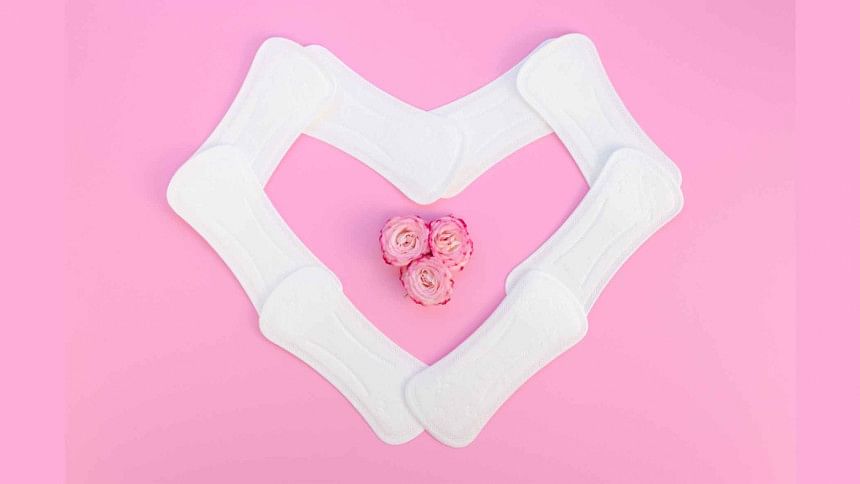Menstrual Hygiene Day 2022: Time to put policy into action

Menstruation or period is a natural phenomenon for women of reproductive age and indicates a healthy life. Yet, many people—both men and women—consider the monthly period cycle as an illness. In recent years, awareness about menstruation and menstrual hygiene management (MHM) has received considerable tailwind from the policymakers in the Bangladesh government. Most women and girls in Bangladesh often face adversities regarding menstrual hygiene due to a lack of access to accurate information and sufficient knowledge. Over the last three years, the Menstrual Hygiene Day (May 28) movement has been calling for more action and investment in menstrual health and hygiene. Using the hashtag #WeAreCommitted, organisations all over the world will start to publicly announce that they are committed to contributing to the creation of a world where no one is held back because they menstruate by 2030. The aim of this day is to increase transparency by making public commitments, provide a basis for accountability, and encourage others to follow our example.
In Bangladesh, menstruation is a taboo topic. Girls and women are still taught to be discreet about their periods and resort to secrecy in their hygiene maintenance while menstruating. Sanitary napkins and other menstruation hygiene products are still wrapped very promptly in brown bags at local drug stores, as if they are selling something illegal or immoral. This needs to change in order to create an environment where talking about menstruation is considered normal. People should feel the same level of ease when buying sanitary napkins or tampons at drug stores as when they buy cough medicine.
In terms of awareness about menstruation and MHM, Bangladesh has achieved progress in some key areas in the recent years. Bangladesh is one of the only two countries (out of 46 countries) that have reported on Menstrual Health Indicators in the Joint Monitoring Programme (JMP) 2021. The National Hygiene Survey in 2018, conducted by Bangladesh Bureau of Statistics (BBS), reported that 97 percent of women had a place to wash and change during periods. However, only 32 percent knew about menstruation before they had it, and 30 percent used disposable sanitary napkins. School absenteeism of girl students due to a lack of proper menstrual hygiene facilities, for three days per month on average, was 40 percent in 2014, which reduced to 30 percent for 2.5 days per month on average in 2019. In 2014, around 85 percent of women used old cloth during menstruation, which reduced to 63 percent in 2019.
Another important milestone has been the publication of the National Menstrual Hygiene Management Strategy, 2021. This national strategy aims to facilitate programmatic and systematic approaches to improve MHM across a range of diverse sectors, such as Water, Sanitation and Hygiene (WASH), health, education, and environment. The national strategy identifies five guiding principles: 1) MHM information, material, and facilities should be made a fundamental right for girls and women to empower them; 2) The private sector should be enabled to bring MHM products to the market that are affordable and easily available all over the country; 3) Male engagement should be facilitated to create a friendly environment for MHM practices by girls and women; 4) Gender-friendly policies should be adopted and MHM mainstreamed in all relevant sectoral strategies and activities; and 5) No girl or woman should be left behind. The strategy also includes the way forward for improving the current practices and key MHM actions and responsibilities of government agencies and other stakeholders at households, educational institutions, healthcare facilities, workplaces, and public places. However, enacting sound policies will not bear much fruit unless they are implemented with commitment and vigour.
High prices make sanitary napkins less affordable for the poor. That forces girls and women from less privileged backgrounds to resort to using unhygienic means during their periods, often leading to infections due to unsafe menstrual management. Since only 23 percent of the menstruating girls and women use sanitary napkins, if the prices go down, the use of sanitary napkins is likely to increase massively in the country. The government's commitment to support girls and women has been well reflected via the withdrawal of VAT from locally produced sanitary napkins in the 2021-22 budget. However, market monitoring by the relevant agencies is essential to understand the impact of VAT repeal on sanitary napkins. In addition, necessary steps are required to make people aware about the VAT exemption for locally produced sanitary napkins, as well as having dialogues with the manufacturers to understand the impacts of the prices and come up with strategies to reach more marginalised women and girls. The government's commitment towards implementing the national MHM policy should also be supported by different development partners.
Hasin Jahan is the country director of WaterAid Bangladesh.
Dr Khonker Taskin Anmol is strategic specialist at WaterAid Bangladesh.
Shadma Malik is communications officer, media at WaterAid Bangladesh.

 For all latest news, follow The Daily Star's Google News channel.
For all latest news, follow The Daily Star's Google News channel. 



Comments